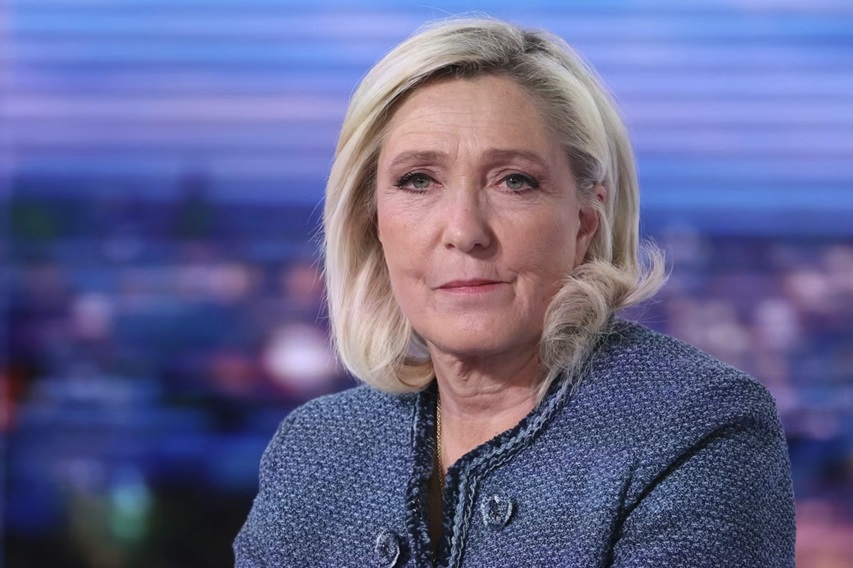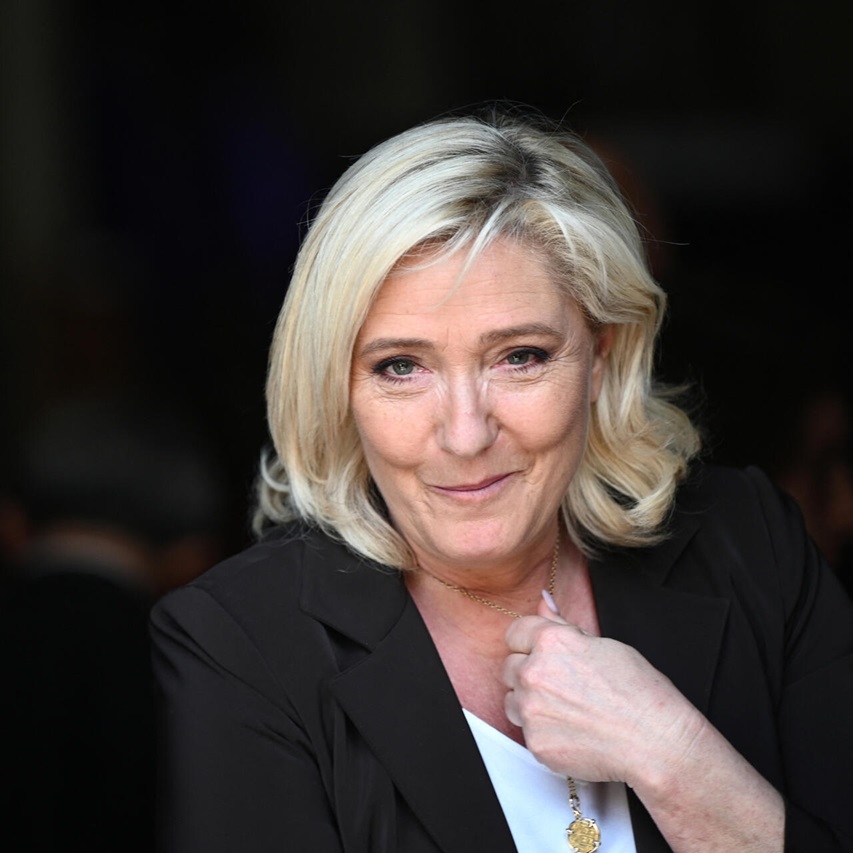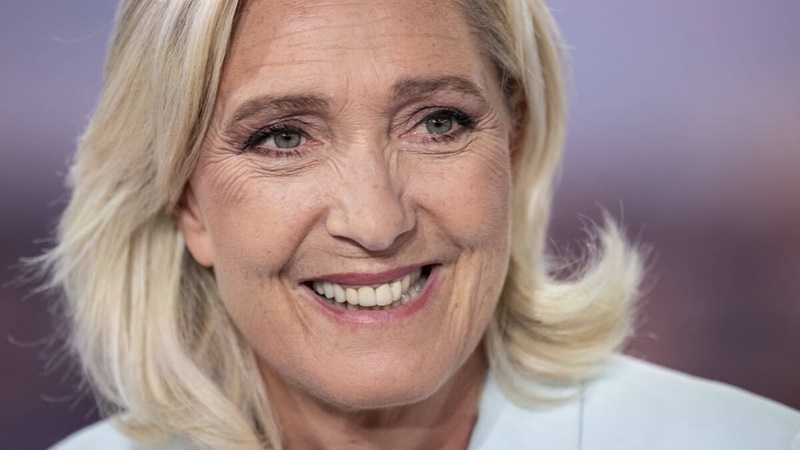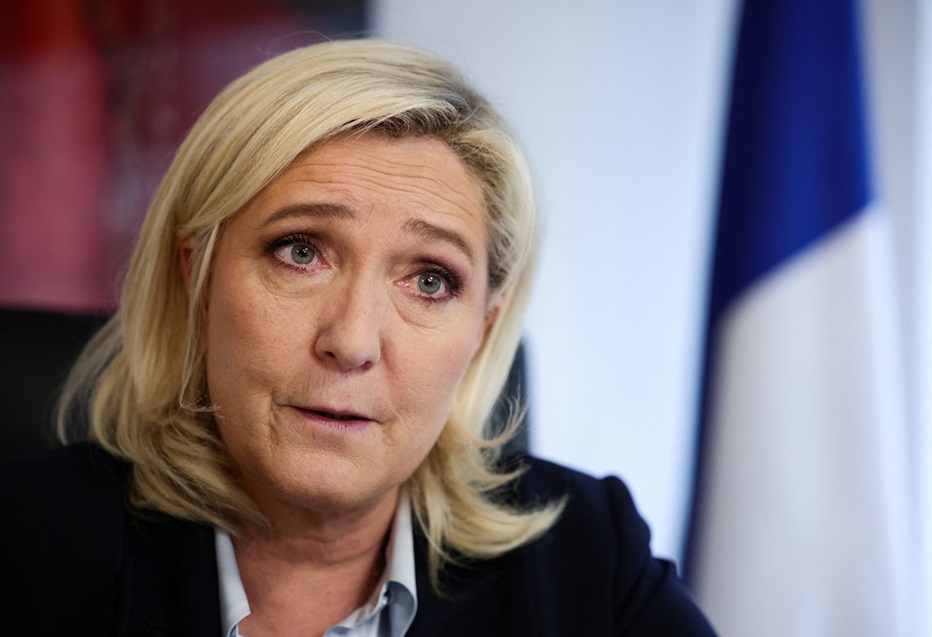
marine le pen age
Introduction: Marine Le Pen Age
Marine Le Pen is one of the most well-known and controversial figures in French politics. As the leader of the National Rally (formerly the National Front), she has spent much of her political career navigating the complexities of France’s political landscape, challenging the traditional party systems while advocating for nationalist, anti-immigrant, and Eurosceptic policies.
Wiki Bio
| Attribute | Details |
|---|
| Full Name | Marion Anne Perrine Le Pen |
| Known As | Marine Le Pen |
| Date of Birth | August 5, 1968 |
| Place of Birth | Neuilly-sur-Seine, France |
| Nationality | French |
| Political Party | National Rally (formerly National Front) |
| Position | Leader of National Rally (since 2011) |
| Profession | Politician, Lawyer |
| Spouse(s) | Franck Chauffroy (1995–2000), Eric Lorio (2002–2006) |
| Children | 3 children |
| Parents | Jean-Marie Le Pen (Father), Pierrette Le Pen (Mother) |
| Education | University of Paris II Panthéon-Assas, Master of Laws |
| Net Worth | Approx. €1.5 million (as of 2025) |
| Notable Positions | Member of the European Parliament (2004–2017), Presidential Candidate (2012, 2017, 2022) |
| Political Stance | Nationalist, Eurosceptic, Anti-Immigration |
| Hobbies/Interests | Horseback riding, Cooking, Literature |
| Residence | France |
Table of Contents
Introduction to Marine Le Pen

Born on August 5, 1968, in Neuilly-sur-Seine, France, Marine Le Pen grew up in a family entrenched in the world of politics. Her father, Jean-Marie Le Pen, founded the National Front in 1972, a far-right political party known for its controversial stances on immigration, national identity, and French sovereignty. Marine Le Pen’s political journey, however, diverged from that of her father in both ideology and strategy. Despite her father’s controversial past, she sought to modernize and soften the party’s image while maintaining its core principles.
Throughout her political career, Marine Le Pen has attracted both staunch supporters and vehement critics. Her political ascent has been shaped by her strong stance on issues like nationalism, identity politics, and immigration reform, as well as her ability to capture the discontent of many French citizens who feel left behind by traditional political establishments.
In this article, we explore the life, political career, financial standing, personal hobbies, and much more about Marine Le Pen.
Early Life and Family Background
Growing Up in a Political Family
Marine Le Pen was born into a politically charged family. Her father, Jean-Marie Le Pen, was a founding member of the National Front, a political party notorious for its nationalist and far-right views. The influence of her father’s ideology was profound, and Marine grew up in a politically conservative household. Her childhood was marked by both privilege and controversy, as her father was often at the center of political and public attention due to his extreme stances on issues such as immigration, European integration, and nationalism.
However, her mother’s influence in her upbringing cannot be understated. Pierrette Le Pen, Marine’s mother, was also politically active, though she was more aligned with traditional conservative views. Marine’s relationship with both parents was complex. While she followed her father into politics, she has since worked hard to reshape the image of the National Front, distancing herself from her father’s more extreme views.
Education and Early Career
Marine Le Pen’s academic journey was grounded in law. After completing her studies at the University of Paris II Panthéon-Assas, she received a Master of Laws degree. Le Pen went on to practice law, specializing in criminal law, and was officially certified as a lawyer in 1992. Although her law career was relatively brief, it provided her with important skills in public speaking and advocacy, which would later prove invaluable in her political career.
Her decision to enter politics was largely influenced by her family’s legacy, as well as the political environment in France during the early 1990s. Her father’s rising influence in French politics was a key factor that led her to align herself with the National Front. However, as she continued her political career, she sought to distinguish herself from her father by adopting a more pragmatic and moderate approach.
Marine Le Pen’s Political Career
Entry into Politics
Le Pen officially entered politics in the late 1990s, joining the National Front as a legal advisor. By 2003, she had risen through the ranks, becoming vice president of the party. Her legal background and political acumen helped her secure a leadership position within the party. She was active in managing the National Front’s legal affairs and served as a key figure during her father’s presidential campaigns.
Her first major electoral campaign came in 2004, when she was elected to the European Parliament. During this time, she began to gain national recognition for her speeches and political rhetoric, appealing to the frustrations of French citizens who felt their country was being overtaken by immigration and globalization. Her focus on national sovereignty, French identity, and a strong stance against the European Union helped her build a loyal following among far-right voters.
Leadership of the National Front

In 2011, Marine Le Pen succeeded her father as the leader of the National Front. While Jean-Marie Le Pen was known for his harsh rhetoric and extremist views, Marine Le Pen sought to rebrand the party by adopting a more polished and appealing image. Her “de-demonization” strategy aimed to soften the party’s image while maintaining its core ideological stance on nationalism and immigration.
Under her leadership, the National Front, later renamed the National Rally, experienced significant electoral gains. Marine Le Pen’s strategy resonated with voters who were dissatisfied with the political establishment, particularly as France grappled with issues like economic stagnation, rising unemployment, and increasing immigration. She positioned herself as the voice of the working-class French people, advocating for policies that would prioritize French citizens over immigrants and restore national sovereignty from the European Union.
Presidential Campaigns
Marine Le Pen has run for the presidency of France three times: in 2012, 2017, and 2022.
2012 Presidential Election
Le Pen’s first presidential campaign in 2012 was a significant milestone in her political career. She received 17.9% of the vote in the first round, placing her third behind the two major candidates, Nicolas Sarkozy and François Hollande. While she did not advance to the second round, the campaign marked her as a major political force in France.
2017 Presidential Election
In 2017, Le Pen’s candidacy gained much more traction. This time, she advanced to the second round, where she faced off against Emmanuel Macron, the centrist candidate who eventually won the presidency. Le Pen’s campaign focused on nationalism, law and order, anti-immigration policies, and skepticism toward the European Union. Although she lost to Macron, she secured 33.9% of the vote, which was a significant improvement from her previous campaign.
2022 Presidential Election
Le Pen’s third bid for the presidency in 2022 was another pivotal moment in her political journey. She advanced to the second round against Emmanuel Macron once again, but this time, her performance was even stronger. She garnered 41.5% of the vote, indicating that her political message resonated with a larger portion of the French electorate.
Despite falling short in the runoff, Le Pen’s presence in French politics remained undeniable, and she solidified herself as the leader of the far-right in France.
National Rally’s Influence
Under Marine Le Pen’s leadership, the National Rally has positioned itself as a major opposition force in French politics. The party’s success in European Parliament elections and local elections, as well as its significant role in national debates, has cemented its place in the political landscape. Le Pen’s focus on issues like sovereignty, immigration control, and national identity has made the National Rally a formidable force in contemporary French politics.
Marine Le Pen’s Net Worth
Marine Le Pen’s estimated net worth is approximately €1.5 million as of 2025. Much of her wealth is derived from her political career, book royalties, and inheritance. While her wealth is modest compared to other political figures, it remains substantial given her long-standing influence in French politics.
Sources of Income
- Political Career: As the leader of the National Rally and a member of the European Parliament, Le Pen has accumulated significant income over the years. Politicians in high-ranking positions in France often receive generous salaries, and Le Pen has capitalized on her role as a public figure.
- Book Publications: Le Pen has authored several books, including works on French identity, nationalism, and the future of Europe. Her books have sold well, contributing to her net worth.
- Inheritance: As the daughter of Jean-Marie Le Pen, Marine Le Pen has also inherited wealth from her family’s political legacy.
Personal Life and Hobbies

Family and Relationships
Marine Le Pen has been married twice and has three children. Her first marriage was to Franck Chauffroy, with whom she had three children. The couple divorced in 2000. She later married Eric Lorio in 2002, but the marriage ended in divorce in 2006. From 2009 to 2019, Le Pen was in a relationship with Louis Aliot, a fellow politician in the National Rally.
Despite her public persona, Le Pen is known to maintain a relatively private personal life, especially when it comes to her children. She is a strong advocate for family values and often speaks about the importance of family in shaping national identity.
Hobbies and Interests
In addition to her political work, Marine Le Pen has a variety of personal interests and hobbies. She is an avid equestrian and enjoys horse riding, often spending time at her countryside property. Le Pen is also passionate about cooking and is known for her love of French cuisine. When not involved in politics, she enjoys spending time with her family and caring for her pets.
Le Pen is also a fan of literature, particularly works related to history, politics, and culture. She often references these books in her speeches, reflecting her intellectual engagement with the subjects she discusses in her political career.
Fun Facts About Marine Le Pen
- Survivor of a Bombing: When she was just eight years old, Marine Le Pen survived a bombing that targeted her family’s home. The attack was believed to be politically motivated and had a profound impact on her worldview.
- Animal Lover: Le Pen is known for her love of animals, particularly cats and horses. Her personal connection to animals often shows in her public persona, where she is seen as a down-to-earth, family-oriented individual.
- Time 100: Marine Le Pen was named one of Time magazine’s 100 most influential people in the world in 2011 and 2015, reflecting her influence in global politics.
Conclusion
Marine Le Pen’s life has been marked by her deep connection to the National Front’s legacy, her efforts to reshape French political discourse, and her enduring presence as a leader of the far-right in France. From her early days in law to her rise to political prominence, Le Pen has crafted a career based on national identity, sovereignty, and immigration reform.



